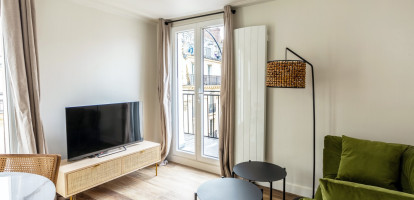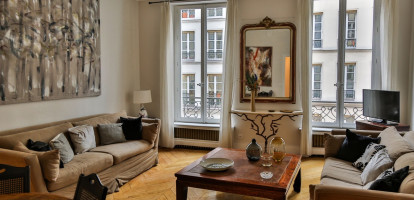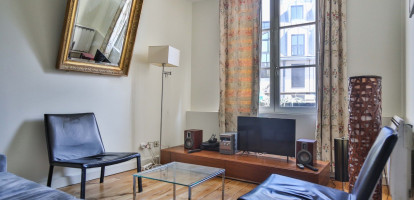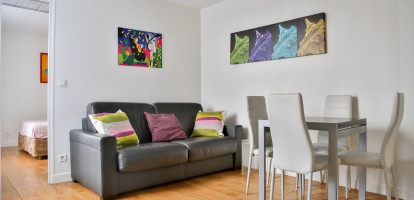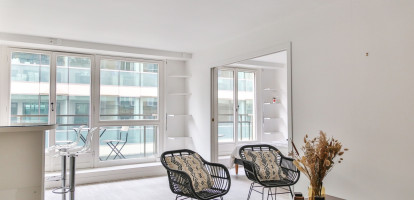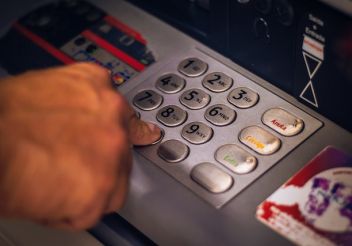Moving to Paris means opening up new horizons. However, the financial and legal aspects of moving to a new country can be confusing. Whether planning a short-term stay or looking to make Paris your home for the long term, understanding essential information about banking, legal obligations, and housing is crucial for your security and peace of mind. In this guide, we'll look at everything expats need to know to navigate Parisian life with confidence and efficiency.
Banking information
Setting up banking in France is essential for expats planning to stay in France long-term to effectively manage their daily administration and because most administrations and service providers require a bank account number to pay bills. Here's a comprehensive guide to help expats understand the banking system in France and navigate the process of opening and maintaining a bank account.
Major Banks in France
Banking hours in France vary. Some banks are open Monday through Friday, 9 a.m. to 5 p.m., others Tuesday through Saturday, and some open on Saturday mornings but close on Mondays. It's important to note that all banks in France are closed on Sundays, public holidays, and the afternoon before public holidays.
Some of the central banks in France include:
- BNP Paribas - One of the largest banks in the world, providing a wide range of financial services. BNP Paribas usually has special offers for students. These can range from an offer of €80 on your deposit account to a one-year commission-free package for foreign students. In addition, BNP Paribas also offers reductions on banking fees for expatriates moving to Paris.
- HSBC - An international bank with a significant presence in France. HSBC France offers a comprehensive range of banking and financial services to individual, corporate, and institutional customers.
- Société Générale - Offers the leading financial services group in Europe with a vast network of branches.
- Crédit Agricole - Known as the "Green Bank" for its roots in farming, it is one of the largest banks in France.
- Crédit Mutuel - A cooperative bank that offers various financial services, including retail banking and insurance.
- La Banque Postale - The banking subsidiary of the French postal service, offering a range of banking and insurance products.
- Crédit Lyonnais (LCL) - A subsidiary of Crédit Agricole that offers retail banking services.
Aside from the traditional banks mentioned above, the French banking landscape is evolving with the emergence of online banks. These online banks offer more convenient, accessible, and cost-effective banking solutions, making your transition to Paris smoother.
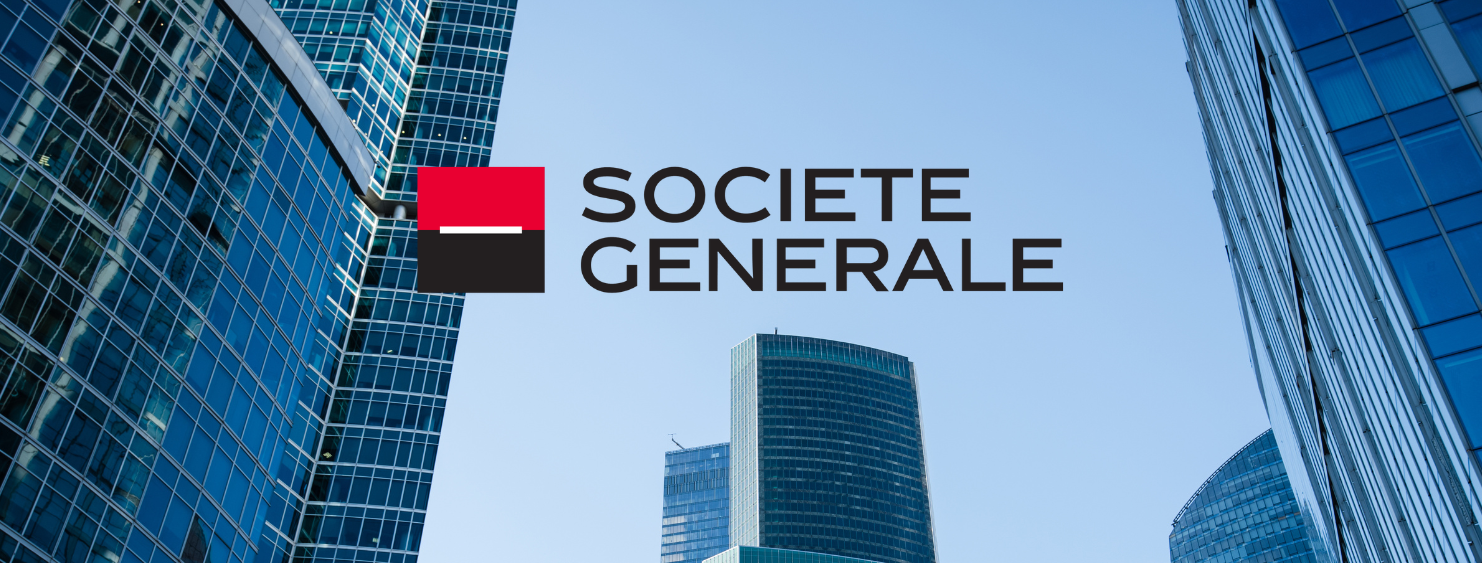
Notable online banks in France include:
- Boursorama Banque - A subsidiary of Société Générale, is renowned for its comprehensive online services, low fees, quick client service, and wide range of financial products. This comprehensive approach can provide reassurance as you navigate the French banking system.
- Hello bank! - A subsidiary of BNP Paribas, offering various banking services entirely online.
- Revolut - A global fintech company offering digital banking services including multi-currency accounts and cryptocurrency trading.
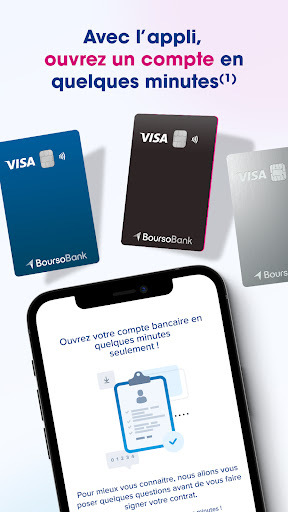
Bank Accounts
Types of Bank Accounts :
- Current Account (Compte Courant): This is the most common type of account for daily transactions, such as receiving salaries, paying bills, and spending money on general expenses.
- Regulated savings accounts (livrets d'épargne réglementés): Designed to save money and earn interest, the French government regulates its terms and conditions. Various types include Livret A, LDDS, LEP, Livret jeune, CEL, and PEL.
- Bank account (Livret d'Epargne Bancaire): A Bank account that allows you to invest your savings and earn interest at a non-regulated rate. Unlike regulated savings books (Livret A or Livret Jeune, for example), public authorities do not set their terms and conditions based on contractual freedom.
- Share savings plan (PEA - Plan d'épargne en actions)
Requirements for Opening a Bank Account :
You can open a bank account at the leading French banks' offices, local branches, or even at your nearby post office (La Poste).
To open a bank account in France, you typically need the following documents:
- ID: Passport or national ID card.
- Valid proof of identity: "Carte Vitale" or Family record book
- Proof of Address:
- Proof of Income/Employment: Employment contract or recent payslips.
- Proof of University Registration Certificate
- Residence Permit: A valid visa or residence permit may be required for non-EU citizens.
A bank advisor (called a "conseiller") will help you with the paperwork and become your contact at the bank. They're there to answer any questions you have about banking. At larger banks, these advisors often speak English fluently.
Steps to Open a Bank Account :
- Choose a Bank: Research and select a bank that meets your needs and the proximity of branches.
- Book an Appointment: Many banks require an appointment to open an account. This appointment can be made online, by phone, or in person at a branch.
- Submit Documents: Bring all necessary documents to your appointment. Depending on your situation, the bank may ask for additional documentation.
- Sign Agreement: Review and sign the account opening agreement. Ensure you understand all terms and conditions.
- Receive Banking Details: Once your account is opened, you'll receive your account details, including IBAN, BIC, and online banking credentials.
- Receive Bank Cards: You'll typically receive your bank cards (Carte Bancaire) within one to two weeks. You can pick them up at the bank or delivered to your home. To activate your new bank card, withdraw cash from an ATM (Distributeur de billets) or pay at a store by entering your confidential PIN.
Traditional French banks like Société Générale are embracing the digital era with easy online account opening. In about 20 minutes, you can fill out the application form, take a selfie, provide your I.D., upload necessary documents, and digitally sign. After you submit it, the bank typically processes your application in about 3 business days. If they need more info, they'll contact you to ensure everything's correct, making the process straightforward and reassuring for expats. Once your application has been accepted, your account will be opened, and your bank card will arrive shortly afterward.
Debit vs. Credit Cards
Debit cards, known as Carte Bleue (CB) in French, are widely used and accepted throughout France, making daily transactions convenient and hassle-free. Additionally, you can get a credit card (carte de crédit). If you plan to use your card outside of France, it's essential to request an international card (carte internationale), which may come with slightly higher monthly fees. In France, all bank cards require a PIN (Personal Identification Number), which you typically receive through mail from the bank.
Online and Mobile Banking
Most French banks offer robust online and mobile banking services. These platforms allow you to:
- Check Balances and Transactions: Monitor your account in real-time.
- Transfer Money: Make domestic and international transfers.
- Pay Bills: Set up direct debits and pay bills online.
- Manage Savings: Transfer funds to and from savings accounts.
Checkbooks (Chèquiers)
In France, banks typically do not issue checkbooks (chèquiers) automatically or without request. However, with the convenience of online banking, you can quickly get a checkbook. Log into your online banking app or website, reach out to your advisor through secure messaging, or make a direct request from your account, following your bank's guidelines. If you are less comfortable with digital services, you can also visit your bank branch where you have your account. Ensure you have your identification, such as a passport, as they'll likely need to verify your identity. You can pick up the checkbook in person or have it sent to your address.
Once you have your checkbook, you can start using your checks, remembering to record each transaction in your check register or on the check stub provided. Be aware that some banks charge fees for canceling a check, so be sure to inquire about any fees or charges related to checks at your bank. Ensure enough funds are in your account to cover the amount you're writing the check for. Bouncing a check (writing a check with insufficient funds) can lead to penalties and legal consequences in France. Besides, checks in France may take longer to process than electronic payments. Therefore, consider this when planning payments to ensure they are processed in time.
Note: the line where the amount should be written is the one above, and the line where the recipient should be written is below. In the United States, it's the other way around. You may make a mistake and have to rewrite your cheques.
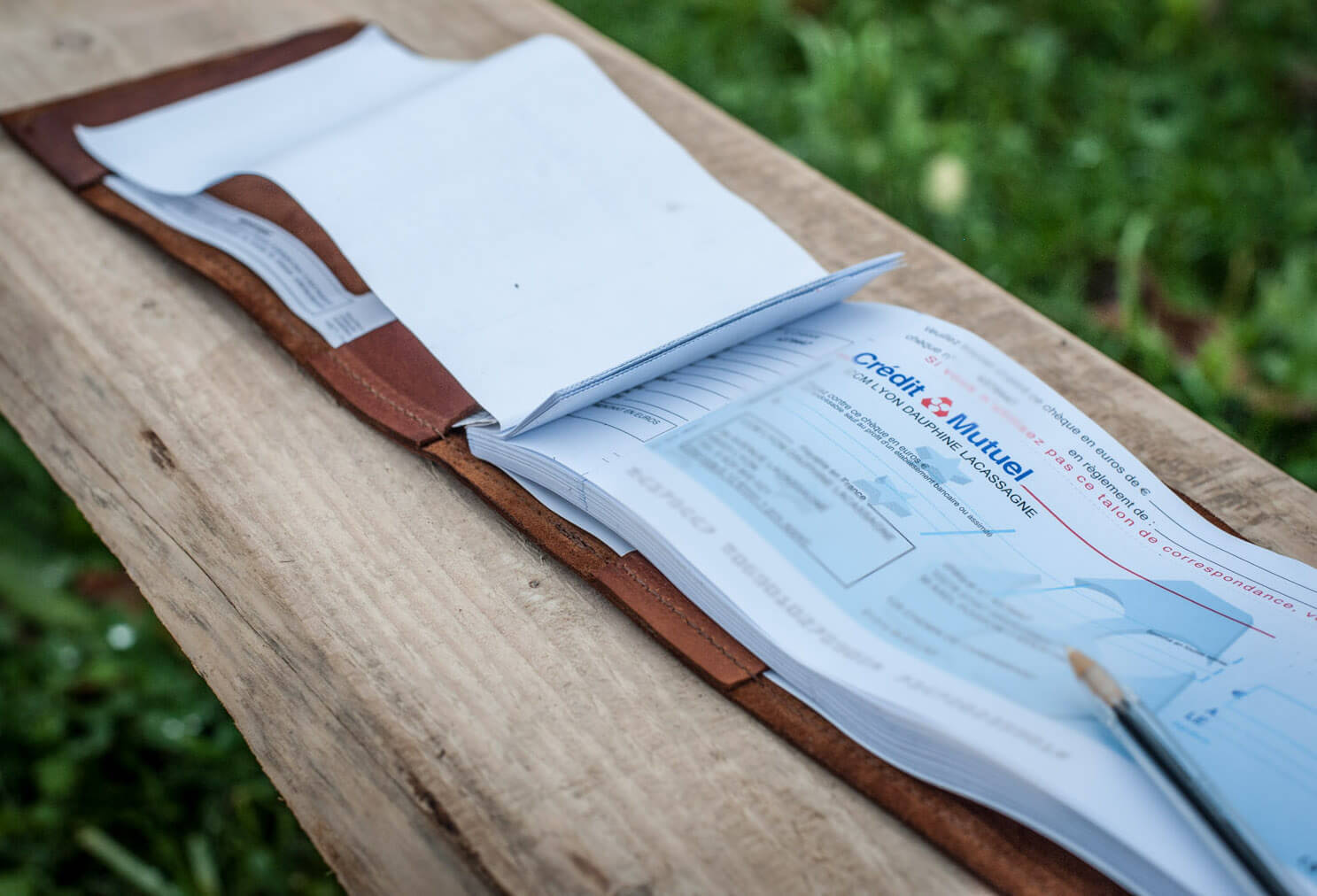
Credit and Debit Cards
French banks typically provide a debit card (Carte Bleue) linked to your current account. Credit cards (Carte de Crédit) are also available but often require a good credit history and proof of income.
Bank card lost or stolen
If your bank card is lost or stolen in France, the first step is to act fast and notify your bank to block unauthorized transactions. French banks have robust security measures in place, and you can do this by calling your bank advisor, using the emergency number provided, logging into your online banking account, visiting your nearest branch, or calling the interbank service at 0 892 705 705 (a toll number available 24/7).
Remember that you cannot reverse the action once you block your card, even if you later find it. You'll need to request a replacement card from your bank.
International Money Transfers to France
When making international money transfers to France, planning ahead is essential. You'll often need to provide supporting documents to prove the purpose of the transfer. The process can take a week or more for the money to arrive, especially if it's coming from a place the French government sees as risky. Both the bank you're sending money from and the one in France might conduct thorough checks to ensure they follow the rules and prevent money laundering. Therefore, planning is crucial, especially for more significant amounts, as these checks can slow things down.
For example, suppose you're renting an apartment in Paris and sending money for the security deposit, first month's rent, and agency fees to the landlord or agency. In that case, the banks usually need documents like the lease agreement and other paperworkto go through with your transfer or payments.
For international money transfers, consider using services like:
- Bank Transfers: You can initiate a bank transfer from your foreign bank account to a French bank account. This method is standard for large transfers and can usually be done online or through your bank's branch.
- Wise (formerly TransferWise): Known for offering competitive exchange rates and low fees.
- Revolut: Offers multi-currency accounts and competitive rates for transfers.
- CurrencyFair: Another good option for low-cost international transfers.
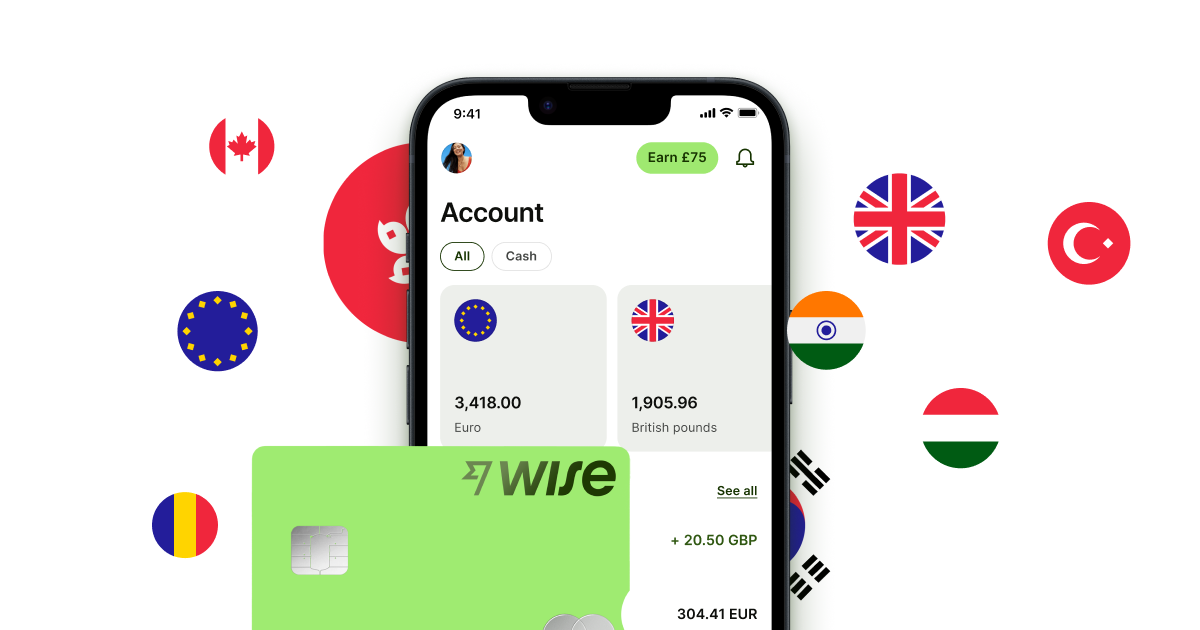
Cash Withdrawals
In France, withdrawing cash is straightforward and accessible through a network of ATMs (Automatic Teller Machines) throughout cities, towns, and rural areas. Most ATMs accept major international credit and debit cards such as Visa and Mastercard. It's common for ATMs to offer instructions in multiple languages, including English, making them user-friendly for international visitors. For security reasons, we recommend using ATMs in well-lit and populated areas, such as inside banks or near major thoroughfares. Always shield your PIN when entering it, and be cautious of suspicious individuals or devices around the ATM.
When withdrawing cash from your French bank account, remember that French banks usually limit how much you can withdraw each day or week as a security precaution. Depending on your bank and account type, these limits can range from a few hundred to several thousand euros. Contact your bank to request a temporary increase if you need more cash than the standard limit. You can adjust your withdrawal limit through your bank's online banking app for minor changes.
Using ATMs from a different bank chain may result in fees; it is best to check with your bank for specific details.
If you enter your PIN incorrectly thrice or do not retrieve your card from the ATM, the machine will retain it. You can usually immediately retrieve your card from the bank during business hours. Otherwise, the bank will return it to your branch within a few days.
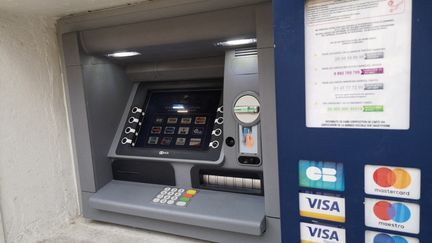
Paying Bills in France
In France, there are various methods to pay bills, each with its considerations:
1. Direct Debit (Prélèvement automatique): Setting up automatic payments ensures your bills are paid on time every month without you having to remember or intervene manually. To set up automatic bill payments from your bank account, like for electricity, Internet, phone, or gym subscriptions, you'll need to complete a "Prélèvement automatique" form provided by the service provider. Include your RIB - bank account details, including your IBAN (International Bank Account Number) and BIC (Bank Identifier Code)—on the form. You can often do this electronically on the provider's website or in person at their office.
Your RIB (Relevé d'Identité Bancaire), which contains your bank account details, can be found in the top left corner of your monthly bank statement or online banking app. You can also ask your bank to print some for you.
2. Bank Transfers (Virement bancaire): You can transfer funds directly from your bank account to pay bills. It offers flexibility in timing and amount. You can make a bank transfer at your local branch in person or online via the banking application/website. When the amount you wish to transfer is relatively large, remember to inform your bank account manager to avoid the bank blocking the transfer or causing inconvenience.
3. Pay Bills in the Post Office: Take the bill to a post office (La Poste), where you can pay by cash, card, or cheque (the post office will charge a small handling fee). After making the payment, you'll receive a receipt as proof of payment.
4. Cheques (Chèques): Fill out a check with the amount specified on the bill, including the date, payee's name, and the amount in both numeric and written form. Optionally, write a note in the memo line to indicate the purpose of the payment (e.g., account number or invoice number). Send your check (chèque bancaire) and the detachable part of the bill to the specific address. Some businesses may also accept checks at their offices or payment counters.
5. Pay Bills at a Tabac Shop: In France, it's also possible to pay specific bills at a tabac or tobacco shop through a service known as "Bar-Tabac." To do so, give the tabac clerk the bill or invoice you want to pay and necessary information, such as the account number or customer reference, to ensure the payment is credited correctly. You can typically pay in cash or sometimes by debit card. After making the payment, you should receive a receipt as proof of payment. Be aware that the "bar- Tabac may charge a small processing fee for this service.
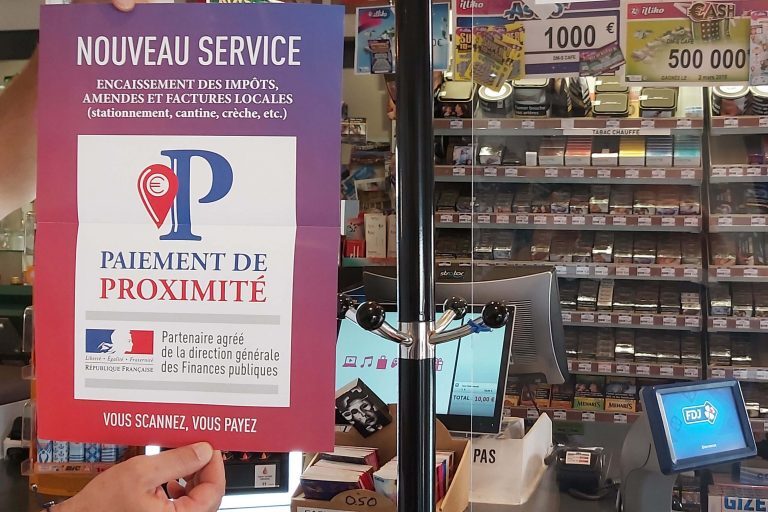
6. Pay in Cash: In France, there are restrictions on how much you can pay for goods or services. If you're a resident of France, you can use cash for payments up to 1,000 euros. However, if you have your tax residence abroad and are making a personal expense, you can pay up to 15,000 euros in cash. These limits are in place to prevent tax evasion and other illegal activities.
Robberies and Break-ins
If you're involved in a robbery or break-in in France, ensure your safety by calling the police at 17. They'll respond and call in the "scientific police" (police scientifique) for investigation, including fingerprint dusting. You can then make emergency repairs to the affected door or window.
Afterward, you'll need to visit the police station to file a complaint within 48 hours of learning of the incident with a detailed list of everything stolen. Completing this list is crucial because you can't add items later.
Contact your insurance company within two (2) business days of the theft to start your claim. You can do this by phone, in person at a branch, online, or by sending a registered letter (lettre recommandée). To substantiate your claim, you should send a copy of the complaint you made previously to the police officer and a list of the damaged and stolen items, together with any supporting documents (photos, repair invoices, invoices, warranty certificates, appraisals, etc.) to prove the value. You may also need proof of forced entry, like a statement from a locksmith or their invoice.
If the police investigation is successful, contact the insurer immediately and inform them of any new information you have.
Lastly, take care of yourself by seeking counseling or support to cope with any emotional impact from the experience. You seek help from France Victimes on 116 006 (free service and call), which is a French organization providing support and free consultation for victims of crime. It offers various services, including legal advice, psychological support, and assistance with administrative procedures.

Driving and License Exchange for Foreigners in France
Driving in France as a foreigner is pretty straightforward if you've got the proper paperwork and know the rules.
If you have a European driving license in France, you can use it without any additional requirements.
Suppose your driver's license is from a non-EU country. In that case, you can still drive in France either with an International Driving Permit (IDP) or an officially certified translation of your license into French (except for British licenses) during your 1st year of stay in France. However, if you plan to stay in France long-term, you must apply to exchange your foreign license for a French one (unless it's a British license issued before 2021).
You can apply for the license exchange online for free through the ANTS (National Agency for Secure Documents) website. You will need the following documents, photographed or scanned:
- Original Driving License: Provide a color copy of both sides of your original driving license.
- Translation: If your license is not in French, get it translated. If translated abroad, it needs to be legalized or apostilled. In France, seek an authorized translator or your embassy.
- Proof of Identity: Bring valid proof of your identity (ex., passport).
- Proof of Domicile: Provide proof of your address in France dated within the last six (6) months, such as electricity, gas, Internet bill, home insurance certificate, etc.
- Proof of Residence Regularity: Show proof of your regular residence status in France, such as a residence permit (carte de séjour or carte de résident) or OFII sticker in your passport.
- Photo with Digital Signature: Include a photo with a digital signature. If you can't get this immediately, you can send a photo-signature form later.
- Certificate of Driving Rights: Obtain a certificate from the issuing country's authorities confirming your driving rights have not been suspended, revoked, or canceled within the last six months.
- Translation of Certificate: If the certificate is not in French, have it translated by an authorized translator in France.
- Proof of Residence in License-Issuing Country (if applicable): If you're not a citizen of the license-issuing country, provide evidence of your residence there when you obtained the license (e.g., consular registration, employment records).
- Documents for Suspended or Canceled License: If your license has been suspended or canceled, include the decision documents, a letter from the prefecture outlining the exchange requirement, and any required medical reports.
Ensure all foreign-language documents are translated into French by an authorized translator. Depending on your situation, you can request additional documents.
Last but not least, be aware that the training department in France may request originals if necessary. And familiarize yourself with local traffic laws and regulations.
Visa and Residence Permit (Carte de Séjour)
If you're not from the European Union, you might only stay in France for up to three months with just your passport. For a long-term stay in France, you'll need the correct visa or residence permit (like a carte de séjour or carte de résident) to live and work there legally. The requirements vary based on your nationality and why you're in France (for work, study, or family).
Your carte de séjour serves as your official ID in France. It's essential to carry it or a copy at all times because French law requires you to have personal identification with you. Police stop you to ask to see your ID anytime, and not having any could lead to being detained. If you're found without identification and less than 2 euros, you could be charged with vagrancy.
If your ID is lost or stolen, report it to the nearest police station (commissariat de police) as soon as possible. They'll give you a report (déclaration de perte ou de vol), which you'll need when applying for a replacement carte de séjour.
Proof of Residence (Justificatif de Domicile)
In France, you'll need proof of residency for most administrative tasks, such as paying bills, opening a bank account, registering for school, or getting a library card. A proof of residency is usually a regular bill that shows your name and home address, like utility bills, gas, water, or electricity. It's important to note that having your spouse's name on the bill without yours may not be sufficient proof of residency.
Moving to Paris can be an exciting and challenging experience., especially when navigating the complexities of finance, banking, legalities and finding a place to call home.
At Paris Rental, we're committed to making your transition seamless, offering not just housing solutions but also a wealth of knowledge to help you enjoy your new adventure in Paris.
Editor: Siyi CHEN
Credit photo @sven D



 Français
Français








